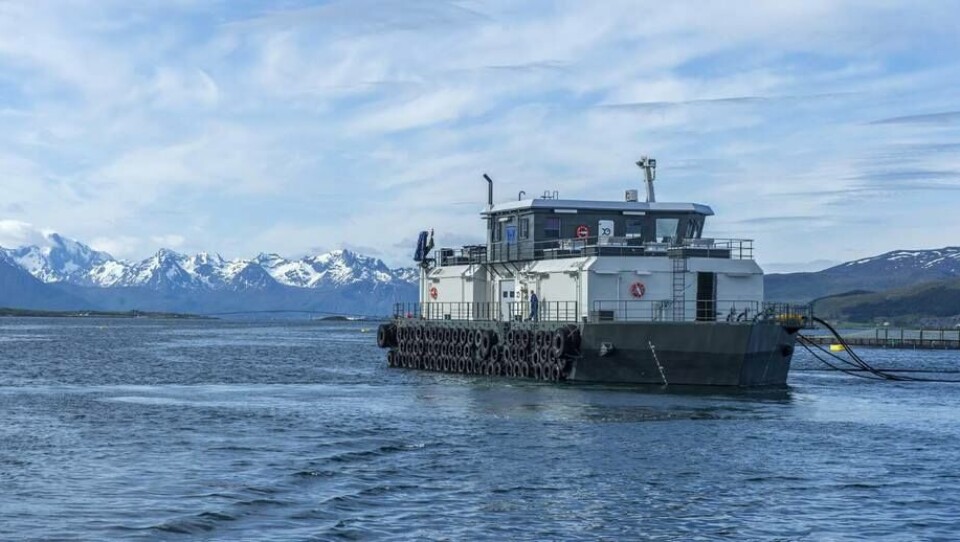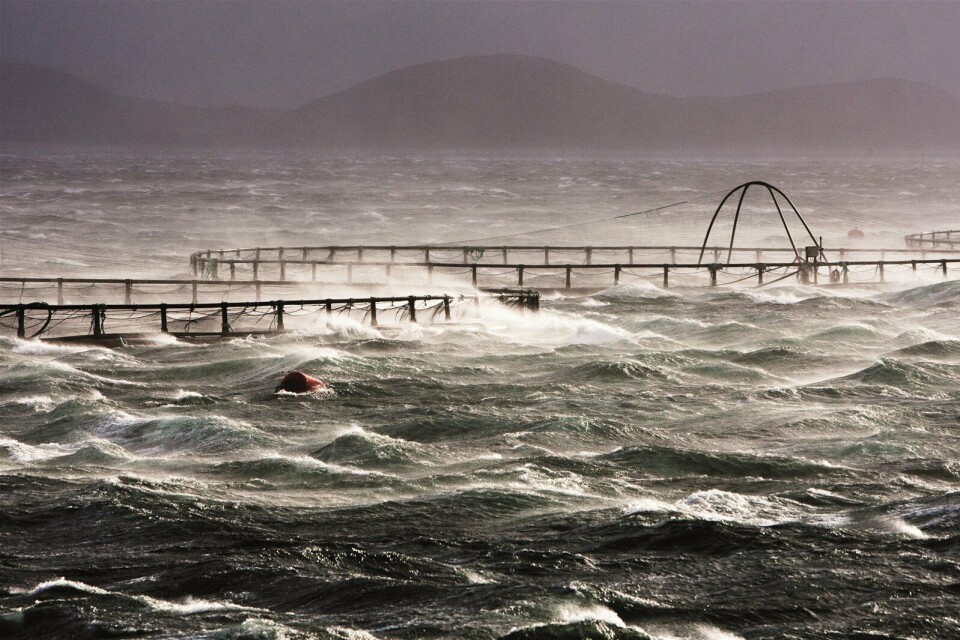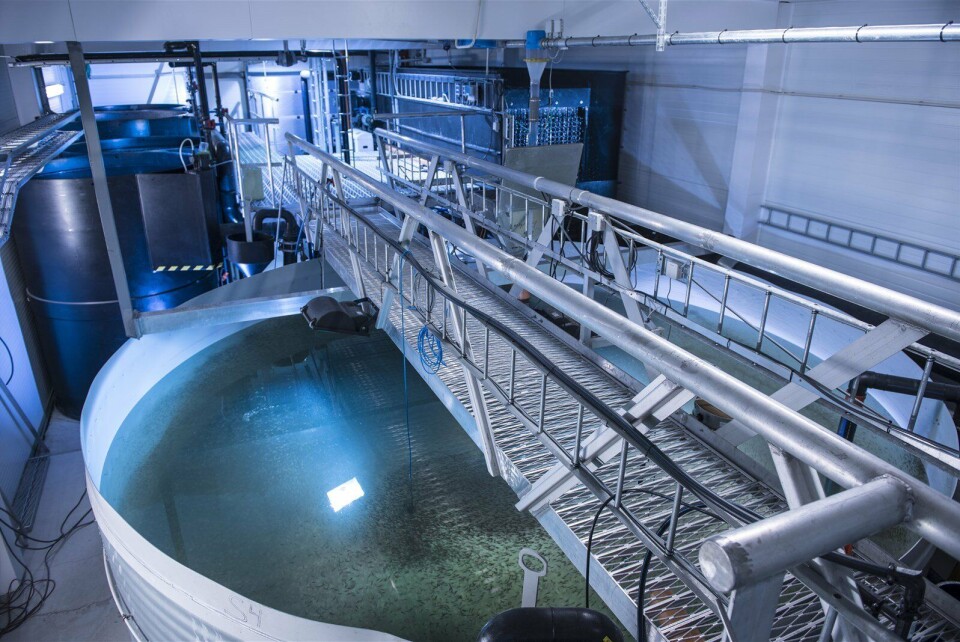
AKVA increases revenue but makes less profit
Aquaculture supplier AKVA Group increased its revenue significantly in the second quarter of 2018 but produced a weaker result.
The Norwegian company’s quarterly report was published today, which shows that operating profit has been weakened from NOK65 million (£6m) in Q2 2017 to NOK53m (£4.9m) in Q2 2018.
AKVA’s turnover improved well in the second quarter, from NOK537m (£50m) in Q2 2017 to NOK627m (£58.5m) in Q2 2018 - an increase of NOK90m.

EBITDA (operating profit) margin in the second quarter was 8.3%, down from 12.1% in Q2 2017. The company closed the quarter with an order book worth NOK1.3 billion (£121m).
Cage-based technology
In the Nordic region, the order intake was NOK219m (£20m), against NOK258m in the first quarter.
“Despite lower margins, the Nordic region continued to experience high activity during the quarter. Investments in new production lines at Helgeland Plast and new equipment at AKVA Marine Services have had a negative effect on the margins,” the company writes.
AKVA Group reports that strong market activity continues in the Americas and the region had an order intake of NOK139m in the quarter, compared with NOK128m in Q2 2017. Following continued good activity and high order book, revenues in the Americas region more than doubled from NOK61m in Q2 2017 to NOK125m.

The Europe and the Middle East region, run from AKVA’s office in Inverness, is still experiencing strong activity and revenues increased by 67% compared with the second quarter of 2017.
“Our businesses in Turkey, Greece, Spain and the Middle East have had another profitable quarter,” the company says in the Q2 report.
Land-based technology
Revenues and margins in the land-based sector have increased compared with the same period last year, although the order intake in Q2 2018 was NOK87m compared with NOK303m in Q2 2017 when the order book was heavily influenced by two major contracts totalling NOK183m.
“Decisions on major land-based projects in Norway continue to be postponed and no projects of this magnitude have been signed in the quarter. Several medium-sized land-based projects have been signed in Scotland, Chile and the Faroe Islands in the second quarter,” the company writes.
The balance sheet is still solid, according to the company. Working capital as a percentage of 12-month rolling revenue is 8.2% versus 6.7% in Q2 2017. Twelve-month average working capital is 6.7%.
Available liquidity at the end of Q2 2018 was NOK418m against NOK197m in Q2 2017. Total assets and total equity were NOK1,881m and NOK499m respectively, against NOK1,606m and NOK473m in Q2 2017. At the end of Q2 2018, AKVA Group had an equity ratio of 26% against 29% a year before.
“We have experienced good activity in all regions and segments in the second quarter of 2018,” the company notes.
Order intake in Q2 2018 was NOK471m, against NOK778m. The total order book at the end of the quarter was NOK1,274m, against NOK1,318m in Q2 2017. NOK449m of the total order book is related to land-based technology.
The way forward
AKVA writes that although strong revenue growth and the lack of larger land-based orders resulted in a decline in the order book in the quarter, the order backlog is still solid at NOK1.3 billion.
“The prospects for land-based orders remain robust and we are organising ourselves to increase our ability to win larger orders within the segment,” the company writes.
The activity in the Nordic cage-based segment, as well as the demand for services, continues to be good. Service and after-sales have a high priority in the company’s strategy, the report states.
AKVA Group believes that the market conditions in Chile are expected to remain favourable, and the company has implemented improvements in the operating and product portfolio, further strengthening its competitive position and presence in the market.
The company expects growth in salmon production on the east coast of Canada and in Iceland and has positioned itself to take part in growth in these markets. This work has shown good progression, especially in Canada in the quarter.
Focus on Mediterranean
The strategy of focusing on fish other than salmon in the Mediterranean area has yielded good results in 2017 and the first half of 2018. The company will continue to develop and invest in these markets in the future, according to the quarterly report.
“The positive economic development has strengthened the group and in 2017 a comprehensive strategy process has been implemented, focusing on all aspects of the business to improve the cost base, product offerings and the ability to deliver sustainable aquaculture solutions to our customers,” the company writes.
The report says that the acquisition of Egersund Net is expected to be completed on August 31, adding: “The transaction will have a significant impact on the financial figures of Akva group and we refer to the Information Meeting published July 23 for further information. Work on planning the integration of the two organisations has begun.”























































